JAMES B. LEMONS, LAST OF THREE BROTHERS who operated the South Side Lem’s Bar-B-Q chain, passed away this week in a north side nursing home at age 87. His passing marks the end of the generation of African-American barbecue entrepreneurs who created the South Side style of Chicago barbecue and in turn used their success in business to support the civil rights movement in Chicago in the 1960s and 1970s. Lem’s itself is the oldest such business remaining in Chicago—every story gives you a different date for when it started, but it’s somewhere between 1948 and 1954—and it remains the most popular such business on the south side, a line running out the door for takeout business most of the day as ribs and rib-tips sizzle and smoke on the giant glass smoker inside.
The Lem’s story begins with Mr. Lemons’ oldest brother Miles, who came to Chicago from Indianola, Mississippi around 1942, inspired by another set of brothers from Indianola, the Collinses, who had found success operating groceries that cooked barbecue on weekends (they later owned a number of their own barbecue restaurants as well). He moved here to work in the restaurant industry, and invented a tangy sauce for barbecue that led him to open his place. Later he recruited his brothers Bruce and James to come up and help out, and each had his own stand—James opened the last remaining Lem’s, at 311 E. 75th, in 1967.
Business has always been busy—as Jim Burnetti of Avenue Metal, which builds the glass pits, told me, “He’s the only one who ever wears out my pits.” Lem’s stands out from other South Side BBQ spots for the speed with which they could cook a rack of ribs or some rib tips, in as little as an hour. The result didn’t entirely break down collagen, so they’ve always been ribs that you needed a good set of teeth for, but at their best (and they are variable) they’re as good as any barbecue in town.
I interviewed James Lemons in 2010 for my documentary on South Side Chicago barbecue; his daughter was running the business by then from a building across the street, and he had cooks who would handle the work of putting the meat on the pit, but he still showed up most days, hanging out in the cooking area watching TV. In his memory, the complete transcript of our interview is published for the first time.
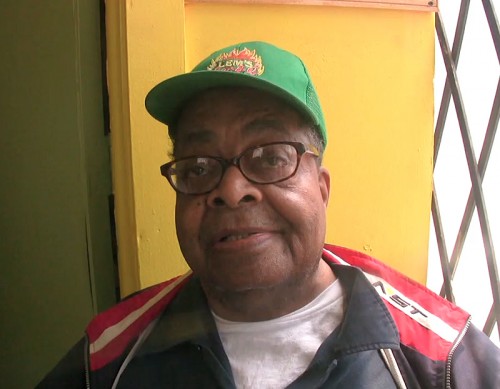
MICHAEL GEBERT: So your brothers learned to barbecue by growing up doing it?
JAMES LEMONS: They grew up doing it.
Was that here in Chicago?
Yeah, yeah, mostly in Chicago. We come from Mississippi.
Would you say it was a Mississippi style?
Well, we’ll say Mississippi style because that’s where we come from. [Chuckles] We use the pit and grill, we use a little charcoal but mostly wood.
Indianola, Mississippi. It’s down in the Delta. Sunflower County. You want to know where it’s close to? It’s about a hundred miles from Memphis. And you know, name some big city that you know—you known Greenville, Mississippi?
I’ve been to Clarksdale.
Well, you’ve been to Clarksdale? We have to go right through Clarksdale when we go home.
We’ve been in Chicago ever since the 40s. Then the oldest brother [Miles], he passed, and then my other brother Bruce, he passed. Them the ones I learned to cook barbecue from.
And it’s always been rib tips and links?
Rib tips and links, yeah.
Is there anything that you cooked down there that you wouldn’t cook for people in Chicago?
No… people in Chicago, they’re hip to all kind of cooking. You know, just somebody who do it and do it good.
It took us a long time to work at it, because we went in business in 1948. My oldest brother opened up a place on 47th street. Then, they moved to 59th street, that’s where they “made their bones,” heh heh.
How’d they cook back then? They didn’t have a glass pit back then, did they?
We had a pit just like we got. Just like the one we got there. They used wood and charcoal. You got to know how much wood—if you overdo it, you overheat it, the meat’ll burn. Happens now, because people don’t pay attention. They take a lot of work.
How long does it take you to learn?
It don’t take nothin’ if you’re not smart, because there’s not much you’re gonna learn. Not if you want to learn something to make a living at it. It didn’t do too bad for me, it didn’t do too bad for my brothers.
But barbecue… it’s a Southern thing. I didn’t know many people in the Northern states that were cooking barbecue back then. Mostly Southern people. Those are the ones that really know how to cook barbecue.
Everybody can learn it if you keep playing with it, moving this, messing with that ingredient. You come up with something good, and that’s what you stick with.
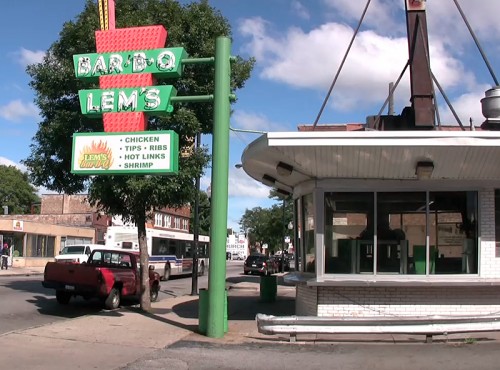
What did your brothers move up here to do, to work in the factories?
No, they just came to Chicago before the war broke out. Just as the war broke out, my oldest brother came. He finished high school and came to Chicago looking for work. Went and got him a job and started cooking in a restaurant. He always liked cooking, he kept playing around with different ingredients. And he come up with this barbecue sauce he made one day. And he let the fellow he was working for taste it and he said, Ooh, that’s good. So then a few years later he opened him up a place. Miles, but everybody called him Lem. And then me and my other brother [Bruce] came to work for him. Bruce was a big man, weighed about 300 pounds.
Were there a lot of other barbecue places then?
Well, there wasn’t a whole lot of barbecue places. Didn’t get a lot of other barbecue places until the 60s and 70s. Most of them come from Mississippi—they had Collins Barbecue, they had—I can’t remember all the names. Ten years ago, if you’d’a come, I could off rattled off names.
My brother kept playing with the sauce and he got it to where he wanted it, the way he wanted it. Turned out pretty good.
This is the only Lem’s, right?
Only one. Used to be one on State Street, 69th and State. My brother ran that one. We’ve been here since 1967. That’s a little while.
And still as popular as ever?
Yeah, we’re popular.
How long does it take to cook a rack of ribs?
How long’s it take? It takes about an hour, hour and fifteen minutes. To really cook it, if you cook it right, it take about an hour, hour and a half.
Which is faster than a lot of places.
Yeah, well, some places they had a brick pit built into the wall, we got the stainless steel pit. I can’t remember the man’s name now, it was a Jewish name, made the pit. Used to be on 35th and… I can’t think of the name of the street. Made the pit for my brother. That’s when they started coming out with that kind of pit.
They used to build them into the wall. Make ’em fireproof. Then they come out with this pit. Avenue Metal—he took over, and his father took over before him. Young fellow got it now, over on Ogden Avenue.
What’s the advantage of this kind of pit? Less expensive to build?
They ain’t no less expensive to build. It’s easy to keep clean. When you build the pit into the wall, you got to go in, pull out bricks, scrape and scrub. And nowadays, some of the health department don’t want to let you stay open with that kind of pit. I don’t know how many people—I don’t go around, tryin’ to be nosy, seeing what type of pit they got. I know mostly people use the pit like the one we got over there.
But they’re not cheap, they’re very expensive. Have to pay a lot to keep it up.
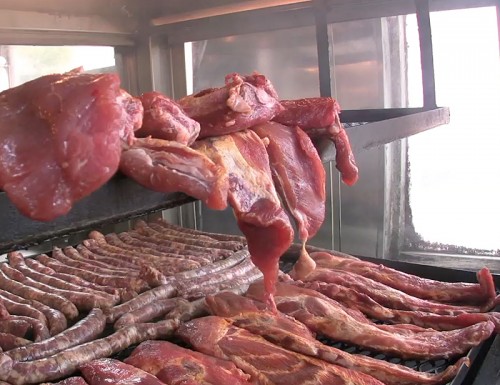
So what’s the most popular thing—rib tips?
Yeah, rib tips now, nowadays. I remember when the meatpackers would throw them in the garbage. 20, 25 years ago, they’d throw them in the garbage. Hell, when Swift had Stock Market [an outlet store], you could go out there back then and so and so would be throwing them in the garbage can. Not now, heh heh.
So they were popular because of the price?
Well, the price went up so high. Pork prices, food prices period is, is, is—I don’t know, it’s ridiculous. Rib tips used to be the cheapest thing on the market when they started selling them—49 cents a pound, 69 cents a pound—now they cost more than ribs. Dollar and twenty cents a pound. Because a lot of people like it.
I like ribs better, I like the small end.
Why’s that?
I don’t know, not hard to get them—if you get the right kind of rib. If you don’t get them big ribs, the small ribs is better than the big ones. The big ribs is tough.
Anything you want to say about being a pitmaster?
Can’t be no pitmaster no more, I’m too old now. I’m trying to train my nephew. People don’t want to be no pitmaster now, it’s hard work. And I don’t have my brothers no more, to help me. It’s my job. You need help. It has to be family—the next person got to care about someone else. The work’s tough. And you can’t depend on people like you used to. I guess they’re jealous, if he can make it I can make it. Back then, it was a living for everybody. Had to make jobs for kids, make jobs for schoolkids, used to make plenty of jobs here.
So they don’t want to work?
Kids don’t mind working. Kids today are much smarter. Years ago, they’d learn cooking. Now they become basketball players, football players—they ain’t got time for no cooking. But that’s the way it is. Kind of hard to find help these days.
One last question. Why do you think people get so fanatic about barbecue?
Well, it’s not… it’s just like anything else, if you don’t have much of it and then you get it… it’s excitable, I guess. I’ve been cooking it so long, looks like I can do it with my eyes closed. But you have to be alert. You got to know your spices, how much spice to put in different things. I done got too old, I tell my daughters how to do it, they got it all wrote down somewhere. But I used to remember it all. Now, last few years, it’s deterioratin’. You know how it is, when you start gettin’ old, forgetful.
And now I laugh at my mama, my mama used to tell me she was 75. I say, how you tell me that. She said, just keep on living, that’s all you got to do. Just stay here long enough and you’ll find out. [Chuckles]
A Barbecue History of Chicago
[su_vimeo url=”http://vimeo.com/29203337″ width=”700″]
Michael Gebert is the editor of Fooditor.
Latest
Join the Discussion
After you comment, click Post. If you're not already logged in you will be asked to log in or register with Disqus.




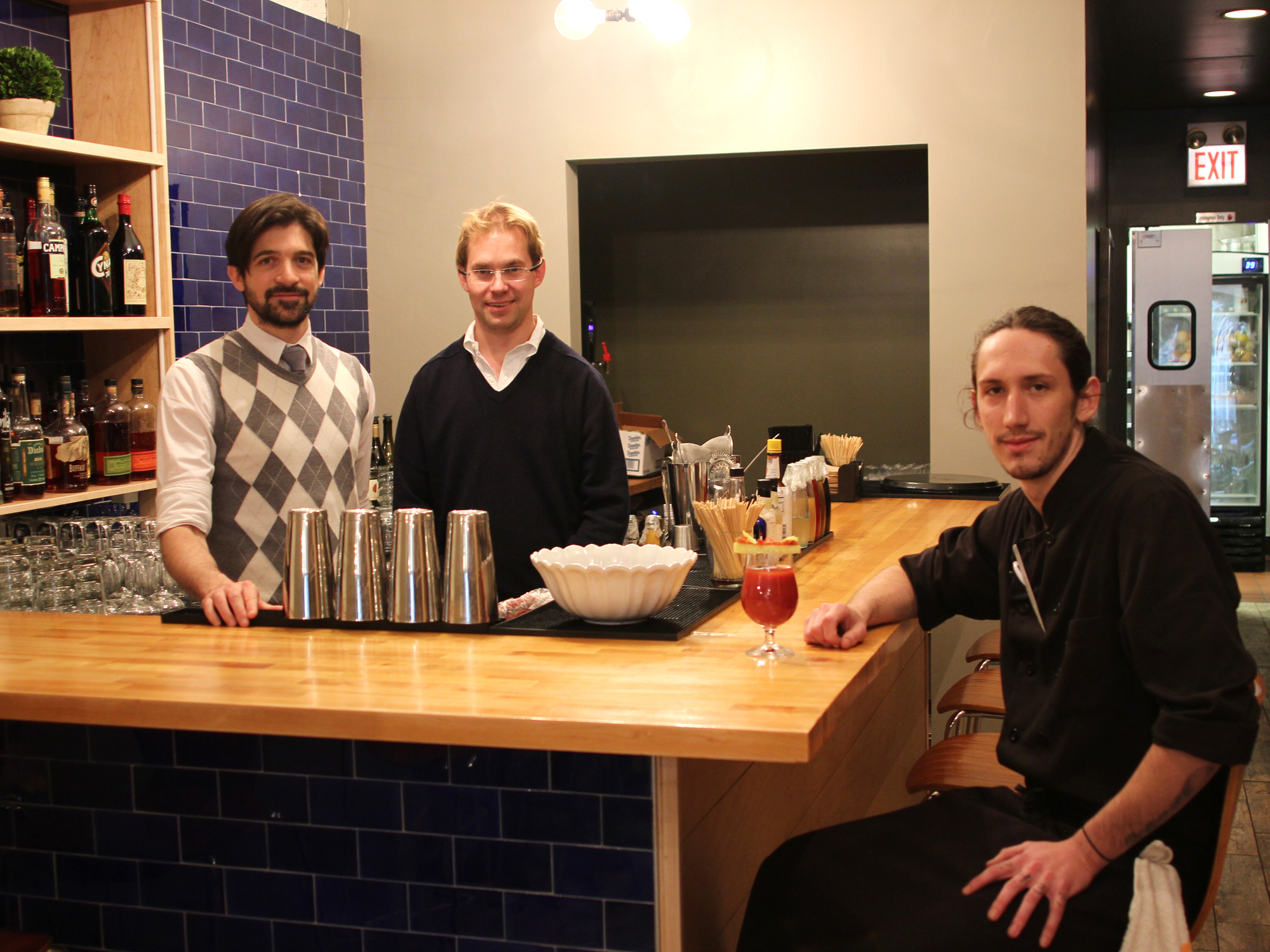
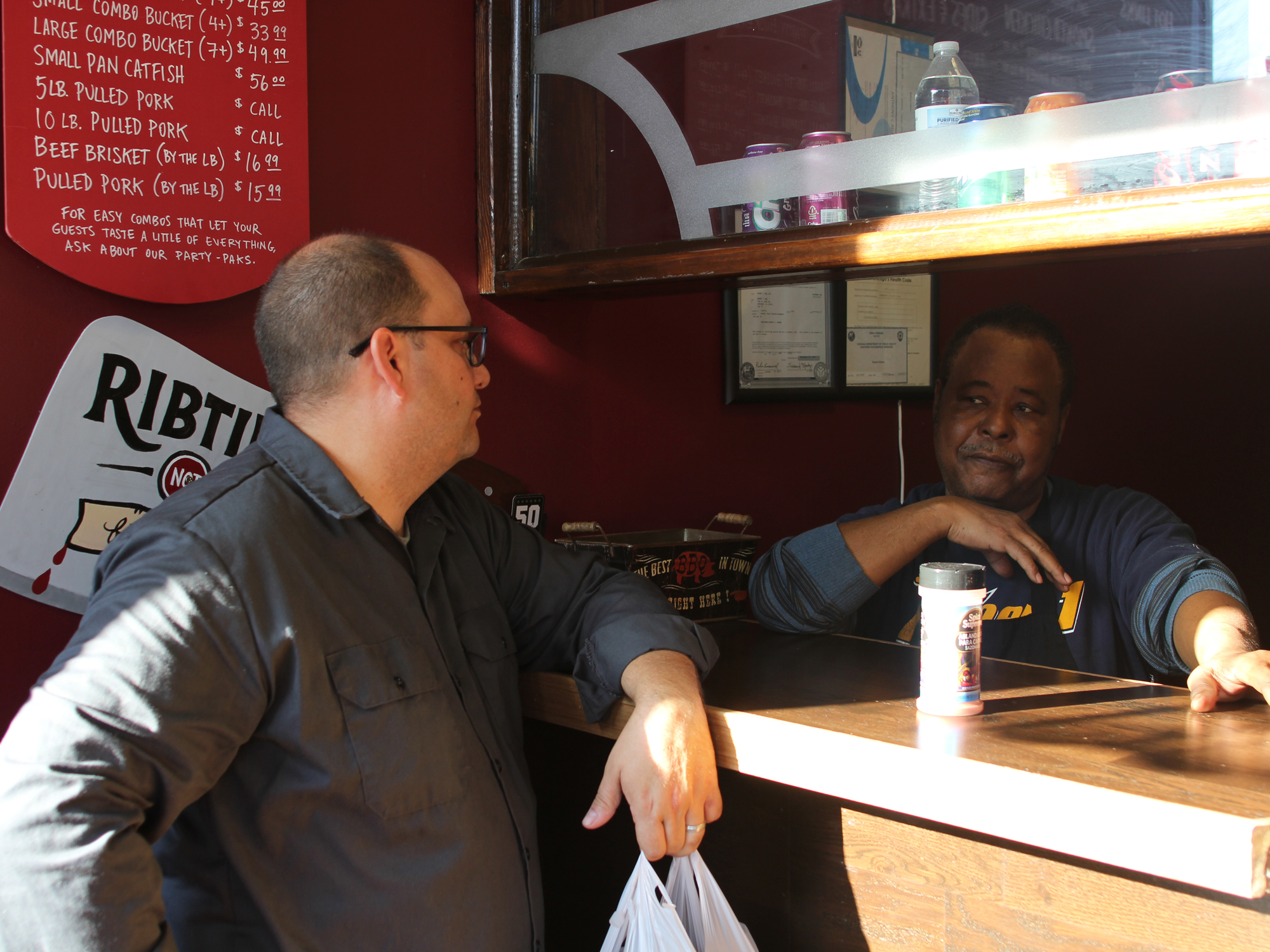
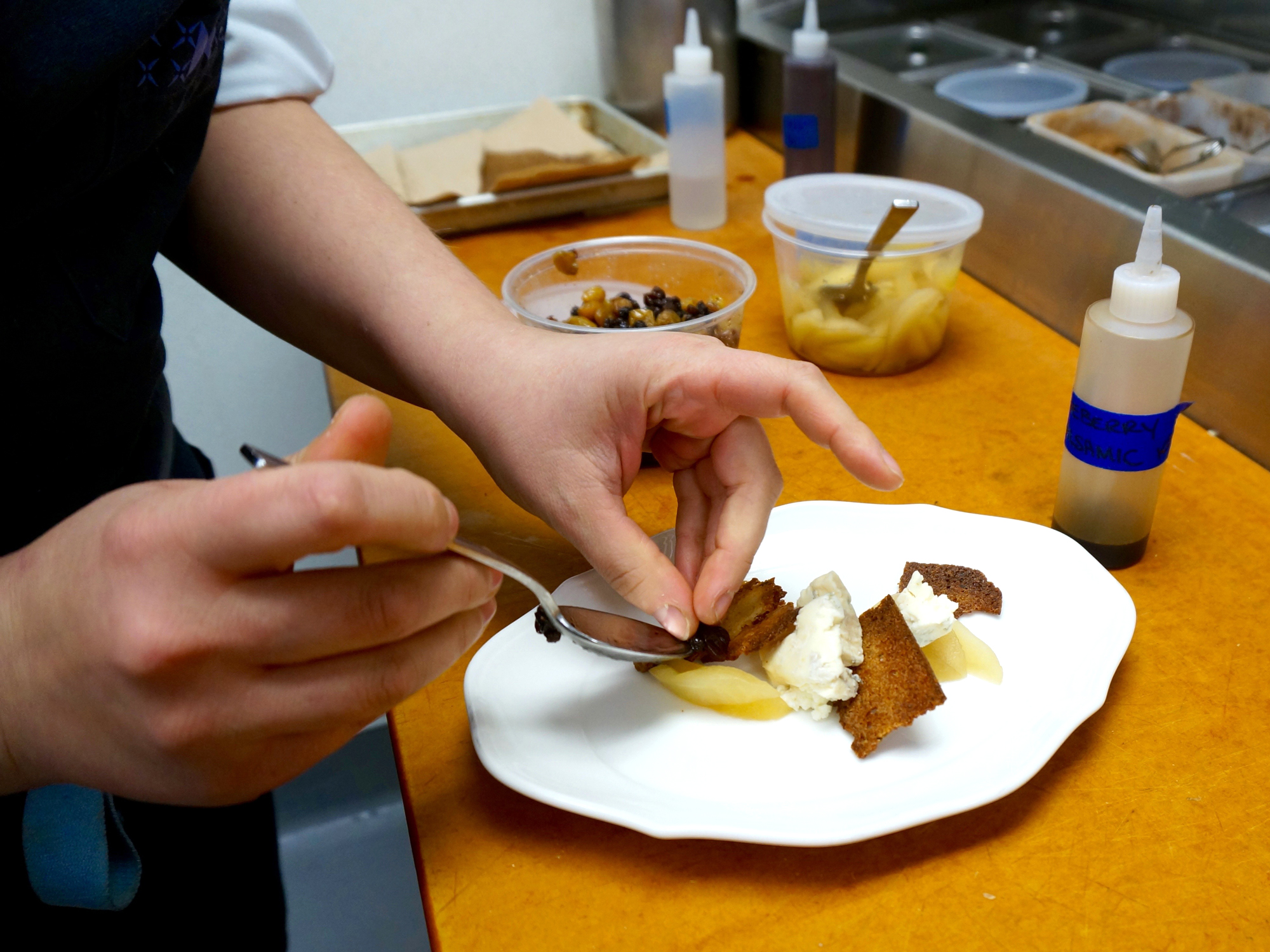
[…] “His passing marks the end of the generation of African-American barbecue entrepreneurs who created the South Side style of Chicago barbecue.” Fooditor runs a 2010 interview in tribute. […]
[…] “His passing marks the conclude of the era of African-American barbecue business owners who created the South Aspect fashion of Chicago barbecue.” Fooditor operates a 2010 job interview in tribute. […]
[…] “His passing marks the end of the generation of African-American barbecue entrepreneurs who created the South Side style of Chicago barbecue.” Fooditor runs a 2010 interview in tribute. […]
[…] rest of my time—I really love Calumet Fisheries. It’s such a good place. I try to get to Lem’s—I still think it’s the best Chicago barbecue, it may have evolved, Leon’s is […]